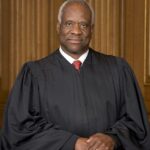JUSTICE O'CONNOR delivered the opinion of the Court. Section 33 of the Longshore and Harbor Workers' Compensation Act (LHWCA or Act), 44 Stat. 1424, as amended, 33 U. S. C. § 933, gives the "person entitled to compensation" two avenues of recovery: Such a person may seek to recover damages from the third parties ultimately at fault for any injuries and still recover compensation under the Act from the covered worker's employer as long as the worker's employer gives its approval before the person settles with any of the third party tortfeasors. The question we decide today is whether an injured worker's spouse, who may be eligible to receive death benefits under the Act after the worker dies, is a "person entitled to compensation" when the spouse enters into a settlement agreement with a third party before the worker's death. We also consider whether the Director of the Office of Workers' Compensation Programs (OWCP) is a proper respondent in proceedings before the courts of appeals.
I
Jefferson Yates worked for Ingalls as a shipfitter at its Pascagoula shipyards in Mississippi between 1953 and 1967 and was exposed to asbestos in his workplace during this time. In March 1981, Mr. Yates was diagnosed as suffering from asbestosis, chronic bronchitis, and possible malignancy in his lungs. Less than a month later, he filed a claim for disability benefits under § 8 of the LHWCA, 33 U. S. C. § 908, asserting that his present condition resulted from his expo
*Briefs of amici curiae urging reversal were filed for Bethlehem Steel Corp. by Robert E. Babcock; and for the National Association of Waterfront Employers et al. by Charles T. Carroll, Jr., Thomas D. Wilcox, and Franklin W Losey.
Victoria Edises and Anne Michelle Burr filed a brief for the Asbestos Victims of America as amicus curiae urging affirmance. sure to asbestos while employed by Ingalls. Ingalls admitted the compensability of this claim and eventually entered into a formal settlement with Mr. Yates in satisfaction of its liability under the Act.
Mr. Yates, in the meantime, filed a lawsuit in Federal District Court against the 23 manufacturers and suppliers of asbestos whose products were allegedly present at the Pascagoula shipyards during the period in which Mr. Yates contracted asbestosis. Before his death in 1986, Mr. Yates entered into settlement agreements with 8 of the 23 defendants (predeath settlements). Each defendant required Maggie Yates, Mr. Yates' wife, to join in the settlement and to release her present right to sue for loss of consortium, even though she was not a party to the litigation. Six of the eight defendants also required Mrs. Yates to release any cause of action for wrongful death that might accrue to her after her husband died. None of the third party settlements was approved by Ingalls.
After her husband's death, which the parties have stipulated resulted from asbestos exposure that occurred "in the course and scope of [his] employment," App. to Pet. for Cert. A-59, Mrs. Yates filed a claim for death benefits as Mr. Yates' widow under § 9 of the Act, 33 U. S. C. § 909. Ingalls contested the claim on the ground that Mrs. Yates had been a "person entitled to compensation" under the Act when she entered into the predeath settlements. Ingalls argued that by failing to obtain its approval of those settlements she forfeited, under § 33(g)(1), her eligibility for death benefits. In response, Mrs. Yates argued that she was not a "person entitled to compensation" when she entered into those settlement agreements because her husband was still alive at that time. The deputy commissioner referred the matter to an Administrative Law Judge (ALJ).
The ALJ ruled in favor of Mrs. Yates. Yates v. Ingalls Shipbuilding, Inc., 26 BRBS 174 (1992). The ALJ recognized that Mrs. Yates was no more than a "potential widow" when she entered into the settlement agreements. App. to Pet. for Cert. A-67. Reasoning that the prerequisites for the recovery of death benefits could not be established prior to the worker's death, he found that the "spouse of an injured employee has no cause of action [under the Act] until the injured employee dies from his work-related injury." Id., at A-68. Because Mrs. Yates had no cause of action for death benefits prior to her husband's death, the ALJ concluded that she was not a "person entitled to compensation" obligated to seek the employer's approval of any settlements signed at that time.
Ingalls appealed to the Benefits Review Board. Yates v.
Ingalls Shipbuilding, Inc., 28 BRBS 137 (1994). The Director, OWCP, appeared as a respondent in support of Mrs. Yates. The Board affirmed, largely in reliance upon our decision in Estate of Cowart v. Nicklos Drilling Co., 505 U. S. 469 (1992), in which we held that an injured worker was a "person entitled to compensation" for the purpose of disability benefits under § 8 of the Act at "the moment his right to recovery vested," id., at 477, which in that case was when the worker suffered his permanent injury. The Board reasoned that Cowart's "vesting" rationale applied to death as well as disability benefits, and observed that Mrs. Yates' "right to death benefits under the Act could not have vested before she became a widow." App. to Pet. for Cert. A-35 (emphasis in original). Although it might appear at the time of settlement that Mrs. Yates would likely become a "person entitled to compensation" under the Act, before her husband's death anyone of several events might occur that would prevent her from recovering any death benefits under the Act-she might predecease her husband, she might divorce her husband, or her husband might die from causes independent of his work-related injury. For these reasons, the Board held that Mrs. Yates was not a "person entitled to compensation" at the time she entered into the predeath settlements, but acknowledged that its ruling was at odds with the decision of the Court of Appeals for the Ninth Circuit in Cretan v. Bethlehem Steel Corp., 1 F.3d 843 (1993), cert. denied, 512 U. S. 1219 (1994).
Ingalls again appealed, this time to the Court of Appeals for the Fifth Circuit. 65 F.3d 460 (1995). Although Ingalls renewed its § 33(g) argument, the Court of Appeals rejected it for the reasons advanced by the Board. Ingalls also moved to strike the brief of the Director and to disallow the Director's further participation in the appeal on the ground that the Director lacked standing. The Court of Appeals dismissed this argument in a footnote, citing its prior decision in Ingalls Shipbuilding Div., Litton Systems, Inc. v. White, 681 F.2d 275, 280-284 (CA5 1982), overruled on other grounds, Newpark Shipbuilding & Repair, Inc. v. Roundtree, 723 F.2d 399, 406-407 (CA5) (en bane), cert. denied, 469 U. S. 818 (1984), in which the court held that "the Director has standing to participate as a respondent in the appeal of a [Benefits Review Board] decision [before the Court of Appeals]." 65 F. 3d, at 463, n. 2. The court distinguished our decision in Director, Office of Workers' Compensation Programs v. Newport News Shipbuilding & Dry Dock Co., 514 U. S. 122 (1995), as relevant only to the question of the Director's standing as a petitioner to the Court of Appeals, and not as a respondent.
The Courts of Appeals are in disagreement over both questions addressed. The Courts of Appeals for the Fifth and Ninth Circuits are divided on the meaning of the phrase "person entitled to compensation." Compare 65 F. 3d, at 464 (potential widow is not a "person entitled to compensation"), with Cretan, supra, at 847 (potential widow is a "person entitled to compensation"). The Courts of Appeals for the Fourth, Fifth, and Ninth Circuits, and for the District of Columbia, are split over whether the Director may participate in proceedings before the Courts of Appeals as a respondent. Compare Parker v. Director, OWCp, 75 F.3d 929, 935 (CA4 1996) (Director may not appear), cert. denied, post, p. 812, with Shahady v. Atlas Tile & Marble Co., 673 F.2d 479, 483-484 (CADC 1982) (Director is a proper respondent as a person "adversely affected or aggrieved" by the decision below); Goldsmith v. Director, OWCp, 838 F.2d 1079, 1080 (CA9 1988) (same); White, supra, at 281-282 (Director may appear pursuant to Federal Rule of Appellate Procedure 15(a)).
We granted certiorari to resolve these splits, 517 U. S. 1186 (1996).
II
We begin our inquiry into the meaning of the phrase "person entitled to compensation" in § 33(g), as we must, with an examination of the language of the statute. Moskal v. United States, 498 U. S. 103, 108 (1990) ("In determining the scope of a statute, we look first to its language, giving the words used their ordinary meaning") (citations and internal quotation marks omitted). Section 33(g)(1) states in pertinent part:"If the person entitled to compensation… enters into a settlement with a third person… for an amount less than the compensation to which the person… would be entitled under this chapter, the employer shall be liable for compensation as determined under subsection (f) of this section only if written approval of the settlement is obtained from the employer and the employer's carrier, before the settlement is executed, and by the person entitled to compensation…. " 33 U. S. C. § 933(g)(1) (emphasis added).
The plain language of this subsection reveals two salient points. First, the use of the present tense (i. e., "enters") indicates that the "person entitled to compensation" must be so entitled at the time of settlement. Second, the ordinary meaning of the word "entitle" indicates that the "person entitled to compensation" must at the very least be qualified to receive compensation. Black's Law Dictionary 532 (6th ed. 1990) (defining "entitle" as "To qualify for; to furnish with proper grounds for seeking or claiming").
We reached the same conclusion in Estate of Cowart v.
Nicklos Drilling Co., 505 U. S. 469 (1992). There, Cowart, an injured worker, settled with a third party without obtaining the consent of his employer or his employer's insurance carrier. Cowart thereafter filed a claim for disability benefits under the Act, which his employer contested. The employer argued that Cowart had been a "person entitled to compensation" under the Act at the time of his settlement, and that his failure to obtain his employer's approval of the settlement barred any further recovery of benefits under the Act. In response, Cowart asserted that he had not been a "person entitled to compensation" when he entered into the settlement because that phrase referred only "to injured workers who are either already receiving compensation payments from their employer, or in whose favor an award of compensation has been entered." Id., at 475.
The Court held that Cowart was barred by § 33(g) from receiving further compensation under the Act. We recognized that the relevant time for examining whether a person is "entitled to compensation" is the time of settlement. Ibid. ("The question is whether Cowart, at the time of… settlement, was a 'person entitled to compensation' under the terms of § 33(g)(1) of the LHWCA"). We then addressed the definition of the term "person entitled to compensation." We said:"Both in legal and general usage, the normal meaning of entitlement includes a right or benefit for which a person qualifies, and it does not depend upon whether the right has been acknowledged or adjudicated. It means only that the person satisfies the prerequisites attached to the right." Id., at 477.
We concluded that Cowart had satisfied the prerequisites for obtaining the permanent disability benefits at issue in that case when he was injured, so that he was a "person entitled to compensation" and required to obtain his employer's approval at the time he entered into the settlement agreement. Ibid.
With Cowart and the plain language of § 33(g) in mind, the relevant inquiry in this case is whether Mrs. Yates satisfied the prerequisites for obtaining death benefits under the Act at the time she signed the releases contained in the predeath settlements. Section 9 of the Act, 33 U. S. C. § 909(b), governs the distribution of death benefits, and provides that a "widow or widower" is entitled to such benefits "[i]f the [employee's] injury causes death." See also § 902(11) (defining "death" as a basis for a right to compensation as "death resulting from an injury"); § 902(2) (defining "injury" as "accidental injury or death arising out of and in the course of employment"). The Act defines a "widow or widower" as "the decedent's wife or husband living with or dependent for support upon him or her at the time of his or her death; or living apart for justifiable cause or by reason of his or her desertion at such time." § 902(16).
Taken together, these statutes indicate that a surviving spouse qualifies for death benefits only if: (i) the survivor's deceased worker-spouse dies from a work-related injury; (ii) the survivor is married to the worker-spouse at the time of the worker-spouse's death; and (iii) the survivor is either living with the worker-spouse, dependent upon the workerspouse, or living apart from the worker-spouse because of desertion or other justifiable cause at the time of the worker-spouse's death. Cf. Thompson v. Lawson, 347 U. S. 334, 336 (1954) (looking to status of spouse at time of death to determine whether spouse is a "widow" or "widower" for purposes of LHWCA). It is impossible to ascertain whether these prerequisites have been met at any time prior to the death of the injured worker. Accord, Cortner v. Chevron Int'l Oil Co., 22 BRBS 218, 220 (1989) ("It is not until death occurs that the right to benefits arises and the potential ben eficiaries are identified"); 51 Fed. Reg. 4270, 4276 (1986) ("Since a claim for survivor benefits does not arise until the employee's death, there is no claim [against the employer] that can be settled [before then]"). We therefore reject the argument that a person seeking death benefits under the Act can satisfy the prerequisites for those benefits at any earlier time-e. g., when the worker is initially injured or when the worker enters into a predeath settlement. See also 20 CFR § 702.241(g) (1996) (no one can enter a settlement agreement with the employer regarding death benefits before the worker dies). Because Mrs. Yates' husband was alive at the time she released her potential wrongful death actions, she was not a "person entitled to compensation" at that time and was therefore not obligated to seek Ingalls' approval to preserve her entitlement to statutory death benefits.
Ingalls contends that the plain language of § 33(g)(1) mandates a contrary conclusion. Ingalls' analysis focuses on the presence of the phrase "would be entitled":"If the person entitled to compensation… enters into a settlement with a third person… for an amount less than the compensation to which the person… would be entitled under this [Act], the employer shall be liable [only if approval is obtained]." 33 U. S. C. § 933(g)(1) (emphasis added).
Because this subsection examines the compensation to which the person "would be entitled" under the Act, argues Ingalls, it "encompasses a broad forward looking concept" that effectively brings any "person who would be entitled to compensation" within its purview. Brief for Petitioners 15. As support, Ingalls draws upon the decision of the Ninth Circuit Court of Appeals in Cretan v. Bethlehem Steel Corp., 1 F.3d 843 (1993). On facts almost identical to those presented here, the Court of Appeals held that the injured worker's spouse was a "person entitled to compensation" for death benefits prior to her husband's death. The court found "lit tIe sense in a distinction that turns on whether the death for which settlement is made has yet to occur." Id., at 847.
Ingalls essentially takes issue with our conclusion that the proper time to evaluate whether a person is "entitled to compensation" is the time of settlement. Ingalls' position is at odds with our precedent, see Cowart, 505 U. S., at 475, and with the plain language of this statute, supra, at 255. The phrase "would be entitled" in subsection (g)(l) simply frames the inquiry into whether the approval requirement applies at all. If the person entitled to compensation enters into a settlement for an amount less than that to which the person "would be entitled" under the Act, then the employer's approval must be obtained. If the settlement is for an amount greater than or equal to the amount to which the person "would be entitled," then the employer's approval need not be obtained. 505 U. S., at 482. Ingalls' reading would assign an additional and unnecessary purpose to the phrase. Under Ingalls' suggested reading, a worker's spouse who signs a predeath settlement is considered a "person entitled to compensation" even though, in the time between the settlement and the worker's death, the worker's spouse might become ineligible for those death benefits (e. g., by predeceasing or divorcing the worker). In this context, the worker's spouse would not actually be entitled to death benefits, but would nonetheless be considered the "person entitled" to such benefits. This reading cannot be supported by the statutory language.
Ingalls also contends that we should depart from a plain reading of the statutory language because strict adherence to it is at odds with the policies underlying the Act. More specifically, Ingalls avers that our reading of § 33(g) will effectively abrogate the employer's right to offset its liability for death benefits by any amounts received by the surviving spouse in predeath settlements. Section 33(f) allows an employer to reduce its compensation obligations under the Act by the net amount of damages that the "person entitled to compensation" recovers from third parties. 33 U. S. C. § 933(f) ("If the person entitled to compensation institutes proceedings… the employer shall be required to pay as compensation under this chapter a sum equal to the excess of the amount which the Secretary determines is payable on account of such injury or death over the net amount recovered against such third person"). If, as Ingalls asserts, the phrase "person entitled to compensation" means the same thing under § 33(f) as it does under § 33(g), see Cowart, supra, at 479, then our holding today means that an employer would not be permitted to reduce the spouse's death benefits by any amounts the spouse receives from predeath settlements. Such a spouse would be able to recover once from the third party and again from the worker's employer under the Act after the worker's death. In effect, a spouse in this situation-unlike a spouse who entered into settlements the day after the worker dies-would receive double recovery for her injuries. This double recovery, Ingalls contends, contravenes one of the central tenets of the Act set forth in § 3(e), 33 U. S. C. § 903(e), of the Act: "[A]ny amounts paid to an employee for the same injury, disability, or death for which benefits are claimed under this chapter pursuant to any other workers' compensation law or section 688 of title 46, Appendix (relating to recovery for injury to or death of seamen), shall be credited against any liability imposed by this chapter." See also Cowart, supra, at 483 (noting that the Act "ensures against fraudulent double recovery by the employee"); 2A A. Larson, Workers' Compensation Law § 71.21 (1996) ("[T]he policy of avoiding double recovery is a strong one… "). In Ingalls' view, our reading of the statute gives a "potential widow… greater benefits and protections than that afforded to covered employees who settle their third party claims." Brief for Petitioners 22-23.
This entire argument, however, presupposes that the definition we today give to "person entitled to compensation" under § 33(g) applies without qualification to § 33(f) as well. This is a question we have yet to decide, and is one we leave for another day. If, for the sake of argument, we assumed that Ingalls' proposition were correct, our conclusion on the question presented in this case would not change. We agree that the Act generally reflects a policy of avoiding double recovery. See 33 U. S. C. § 903(e). But § 903(e) is of fairly recent vintage, Pub. L. 98-426, 98 Stat. 1640; E. P. Paup Co. v. Director, OWCp, 999 F.2d 1341, 1350 (CA9 1993) ("Prior to [enactment of] section 903(e), the credit doctrine allowed offset of benefits against LHWCA awards only ifprior benefits were awarded under the LHWCA") (emphasis added), and its reach is not all inclusive. See, e. g., Todd Shipyards Corp. v. Director, OWCp, 848 F.2d 125 (CA9 1998) (allowing double recovery of veterans disability benefits and LHWCA benefits); Brown v. Forest Oil Corp., 29 F.3d 966, 971 (CA5 1994) ("Although admittedly the LHWCA has a general policy to avoid double recoveries, we have also noted that limitations on employee recovery are not favored absent statutory authority") (footnote omitted). Because the prohibition against double recovery is not absolute, we do not find the possibility of such recovery in this context to be so absurd or glaringly unjust as to warrant a departure from the plain language of the statute. See United States v. Rodgers, 466 U. S. 475, 484 (1984) (plain language controls unless it leads to results that are" 'absurd or glaringly unjust' "). Furthermore, as Ingalls acknowledges, see Reply Brief for Petitioners 13, subrogation under the Act is not an employer's exclusive remedy against third parties responsible for employees' injuries; an employer in Ingalls' position would remain free to seek indemnification against a third party through a tort action in state or federal court. Pallas Shipping Agency, Ltd. v. Duris, 461 U. S. 529, 538 (1983); Federal Marine Terminals, Inc. v. Burnside Shipping Co., 394 U. S. 404, 412-414 (1969). Accordingly, we hold that before an injured worker's death, the worker's spouse is not a "person entitled to compensation" for death benefits within the meaning of LHWCA § 33(g), and does not forfeit the right to collect death benefits under the Act for failure to obtain the worker's employer's approval of settlements entered into before the worker's death.
III
Ingalls also challenges the "standing" of the Director, OWCP, to appear before the courts of appeals as a respondent in cases in which there are already two adverse litigants. To assess this claim, familiarity with the Act's appeals process, as well as with the Director's role within that process, is helpful.
A person seeking compensation under the Act must file a timely claim with the local deputy commissioner. 33 U. S. C. § 913(a) (i-year limitation period). The commissioner notifies the employer of the claim, § 919(b), at which time the employer might: (i) agree to pay the amount of benefits fixed by the Act, 20 CFR § 702.231 et seq. (1996) (procedures for payment of noncontroverted claims); (ii) enter into a formal settlement with the person seeking compensation for a (presumably) lesser amount, subject to the approval of the deputy commissioner or an ALJ, 33 U. S. C. § 908(i); 20 CFR § 702.241 et seq. (1996); or (iii) give notice that it is denying liability for, or controverting, the claim, § 702.251. If the employer controverts the claim, the deputy commissioner is empowered to attempt to resolve the parties' dispute informally. § 702.311 et seq. Should informal discussions prove unsuccessful, the commissioner refers the matter to an ALJ and a formal hearing is held. 33 U. S. C. §§ 919(c)-(d); 20 CFR § 702.316 (1996). "[A]ny party in interest" may appeal the ALJ's decision to the Benefits Review Board. 33 U. S. C. § 921(b)(3). An appeal from the Board's decision to the courts of appeals may be initiated by "[a]ny person adversely affected or aggrieved by a final order of the Board." § 921(c); see also 20 CFR § 802.410(a) (1996).
The Director, OWCP, plays a significant role in this process. In addition to being charged with the LHWCA's ad ministration, § 701.202 (transferring to the Director "all functions of the Department of Labor with respect to the administration of benefits programs under the [LHWCA]"), and enforcement, § 802.410(b) (noting that Director is "responsible for the administration and enforcement of the [LHWCA]"); see also Newport News, 514 U. S., at 134 (noting Director's "duty of uniform administration and enforcement"), the Director has also been authorized by the Secretary of Labor to appear as a litigant before the relevant adjudicative branches of the Department of Labor, the ALJ, and the Benefits Review Board. 20 CFR § 702.333(b) (1996) ("The Solicitor of Labor or his designee may appear and participate in any formal hearing [before an ALJ] held pursuant to these regulations on behalf of the Director as an interested party"); § 802.202(a) ("Any party… may appear before and/or submit written argument to the [Benefits Review] Board"); § 801.2(a)(10) (defining "party" to include "the Secretary or his designee"); § 802.201(a) ("The Director, OWCP,… shall [under certain circumstances] be considered a party adversely affected" for purposes of initiating appeal to Board).
The Director may also appear before the courts of appeals, although the limits of the Director's authority to do so are less clear. Section 21(c) of the Act, 33 U. S. C. § 921(c), provides in relevant part that"[a]ny person adversely affected or aggrieved by a final order of the Board may obtain a review of that order in the United States court of appeals for the circuit in which the injury occurred…. "
In Newport News, we held that "the phrase 'person adversely affected or aggrieved' does not refer to an agency acting in its governmental capacity," 514 U. S., at 130, so that the Director was therefore not permitted to appeal from a decision of the Benefits Review Board when the Board's decision did no more than "impai[r] [the Director's] ability to achieve the Act's purposes and to perform the administrative duties the Act prescribes," id., at 126. We expressed no view on the question whether the Director can appear before the court of appeals, not as a petitioner seeking review, but as a respondent. Id., at 127, n. 2.
Any impediment to the Director's appearance as a respondent in this case is not of constitutional origin. As we stated in Newport News, although the Director had no statutory authorization to petition the Court of Appeals, "Congress could have conferred standing upon the Director without infringing Article III of the Constitution." Id., at 133. In light of this observation, Article III surely poses no bar to the Director's participation as a respondent in those courts. Cf. Diamond v. Charles, 476 U. S. 54, 68-69 (1986) (reserving question whether persons seeking to intervene "must satisfy not only the requirements of [Federal Rule of Civil Procedure] 24(a)(2), but also the requirements of Art. III").
Whether the Director has statutory authority to appear as a respondent before the courts of appeals is not as easily resolved. The Act itself does not speak to the issue. Section 21(c) of the Act, by its very terms, defines only who "may obtain a review of [a final order of the Board]," 33 U. S. C. § 921(c); it does not purport to delineate who may appear in those proceedings once a proper party initiates them. Thus, we must reject Ingalls' argument that § 21(c) requires the Director to demonstrate an "advers[e] [e]ffect or aggriev[ement]" in order to appear as a respondent.
Section 21a of the Act, 33 U. S. C. § 921a, similarly provides no authorization. While § 21a states that "[a]ttorneys appointed by the Secretary shall represent the Secretary, the deputy commissioner, or the Board in any court proceedings under section 921 of this title or other provisions of this chapter," it says nothing about when the Secretary may be a party to those proceedings in the first place. See also 20 CFR § 802.410(b) (1996) ("The Director, OWCP,… shall be deemed to be the proper party on behalf of the Secretary of Labor in all review proceedings conducted pursuant to section 21(c) of the LHWCA"). Nor need we infer the Director's right to appear as a respondent in order for § 21a to have meaning. Although Newport News curtailed the Secretary's right to appear as a petitioner before the courts of appeals in most circumstances, that decision did not foreclose an appearance as a petitioner in all situations. See, e. g., Newport News, supra, at 128, n. 3 (leaving open the possibility that the Director may be a "person adversely affected or aggrieved" when appealing a Board ruling adverse to the §944 fund).
Left with no guidance from the Act itself, we turn to the general rule that governs all appeals from administrative agencies to the courts of appeals, Federal Rule of Appellate Procedure 15(a). That Rule, in pertinent part, states:"Review of an order of an administrative agency, board, commission, or officer (hereinafter, the term 'agency' will include agency, board, commission, or officer) must be obtained by filing with the clerk of a court of appeals… [the appropriate form indicated by law]…. In each case the agency must be named respondent." (Emphasis added.)
We believe that it is this Rule that confers upon the Director the right to appear as a respondent before the courts of appeals. Rule 15(a) clearly applies to appeals from the Benefits Review Board: The LHWCA authorizes appellate review of the "final order of the [Benefits Review] Board," 33 U. S. C. § 921(c), and Rule 15(a) applies to "[r]eview of an order of an administrative agency [or] board." We decline to read Rule 15(a) more narrowly, as the Courts of Appeals for the Fourth Circuit and the District of Columbia have done. Those courts have held that Rule 15(a) applies only where "a single private party is contesting the action of an agency, which agency must appear and defend on the merits to insure the proper adversarial clash requisite to a 'case or controversy.'" McCord v. Benefits Review Board, 514 F.2d 198, 200 (CADC 1975). Where "there is sufficient adversity between [the employer and the claimant] to insure proper litigation," ibid., they reason, "the Director's presence as a party is not necessary" and would in fact run afoul of Federal Rule of Appellate Procedure l(b) by "'extend[ing]… the jurisdiction of the courts of appeals.'" Parker, 75 F. 3d, at 934 (citing McCord, supra, at 200); see also Fed. Rule App. Proc. l(b) ("These rules shall not be construed to extend or limit the jurisdiction of the courts of appeals a








